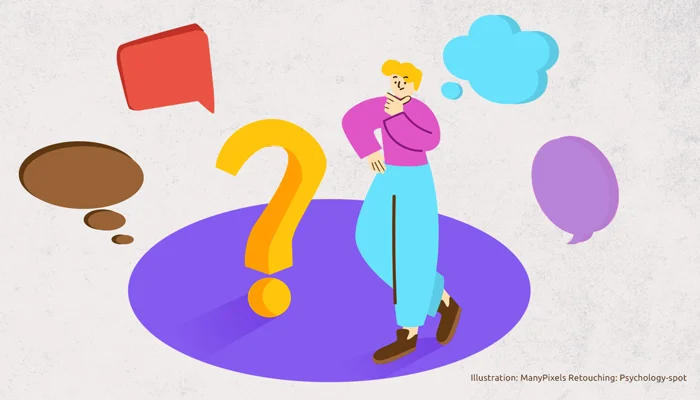
We all have to face tough moments, it is part of the cycle of life. Sometimes these difficulties stem from situations beyond our control, sometimes they’re a direct consequence of our decisions.
In both cases our response is usually the same: we’re overwhelmed by the concern. However, when we sink into negative experiences we only think about the answer we need to give in that moment and it’s like the rest of our identity disappeared.
Beyond the situation we have to face, we become our own worst obstacle and our main source of concern.
Obviously, many situations can’t change, we have no control over what has just happened. However, we can choose how we react, we can determine the meaning we give to the situation. In fact, the 90/10 principle tells us that “10% of life is related to what happens to us, and the remaining 90% with the way we react to it”.
If we don’t think on the importance of learning how to manage our emotions, we spend a lifetime reacting like automatons, leaving to circumstances the role to dictate our mood and therefore our wellbeing. So, next time you face a difficult moment it is advisable you ask yurself a series of questions that allow you to change your perspective of the situation.
When circumstances overwhelm us …
1. Am I breathing? Sometimes all you can do is breathe. When stress and anxiety are so great that paralyze you, focusing on the breath is the first step to regain serenity. In fact, did you know that through a rhythmic and deep breathing you can influence the autonomic nervous system causing blood pressure and heartbeat get back to normal? If you feel very stressed, take 10 minutes a day of your time to breathe deeply.
2. How do I feel? It is not wise to make decisions when we are overwhelmed emotionally. However, when we face difficult situations, we tend to sink into the black hole of negative emotions, and sometimes we are not even aware of it. Therefore, it is important to develop awareness of the emotions. The simple fact of knowing that emotions are there deprives them of their negative impact and allows you to make better decisions.
3. What responsibility I have? This is not about blaming someone but to determine responsibilities. It’s not a mere terminological disquisition but involves a profound change of perspective. Focus on the responsibility that corresponds to you, that way you can reduce the challenge and find the part of the condition on which you can actually have influence.
4. What can I control? One of the greatest sources of anxiety and depression is to think that everything depends on us, that we have the control. However, in the real world many things are beyond our control, so when you feel overwhelmed by circumstances, ask what you can actually control of the situation that worries you. Focus on what you can change, however it could be a small part of it.
5. What is that I can’t control? It means identifying all the things that are beyond our control and accept that however for much we try, it is normal that there is some degree of entropy. Take the time you need to assess the situation and then let go all the things you worry about but can’t control. Remember that worrying about things you can’t solve it involves a considerable loss of energy that keeps you from focusing on what you can actually fix.
6. What is the most important thing I can do immediately? When a situation is overwhelming and we don’t know how to behave, we tend to procrastinate. However, while we procrastinate the problem increases and the concerns grows uncontrollably. Therefore it is very important to act. In this case, the kaizen tells us that no matter how small the step, just give it. Ask what you can do right now and without delay, do it. The simple fact of being proactive improves your mood and increases your self-confidence.
7. What are my options? Faced with a difficult situation, it is understandable that emotions take over and drown out our frontal lobe. However, once overwhelmed by emotions we can’t think clearly and are unable to discern possible paths. In this mental fog, desperation and suffering can only increase. Therefore, it is crucial to ask what are our options. Create a list of alternatives that could shed light on possible solutions that you have at hand.
8. Am I taking care of myself? When we are too worried, stressed or overwhelmed, we often neglect our physical and mental health. We sleep poorly, eat poorly and do less physical activity. However, it is in those moments when we need to be at 100% of our capacity. So, when problems knock on your door, make sure you’re careful to yourself, follow a healthy routine every day. Remember that mind and body are an indissoluble unity, and if you neglect one the other is likely to suffer too.
9. What worries me, will be important in the next 5 years? Absorbed in our current concerns, we lose the perspective of the future. When we’re drowning in the sea of despair or we’re overwhelmed, we find it hard to believe that we will find a safe shore. However, probably most of the problems that are concerning us today, will not be significant within 5 years, when we’re able to put things in perspective. Remember that we’re perfect at creating a storm in a glass of water, so that you should always ask yourself if what you’re worried about today it will remain also important in the future.
10. What can I learn? Each difficulty comes with a lesson. Maybe at first you don’t see it, but while time passes, you will notice that the problem has probably helped you to become a more resilient person. Instead of whining and wondering why this have happened to you, try to focus on the teaching, on what can you learn from this setback.
Remember that challenges, changes and problems are all part of life, we can’t avoid them, but we can choose how to deal with and the amount of importance we give to them.



